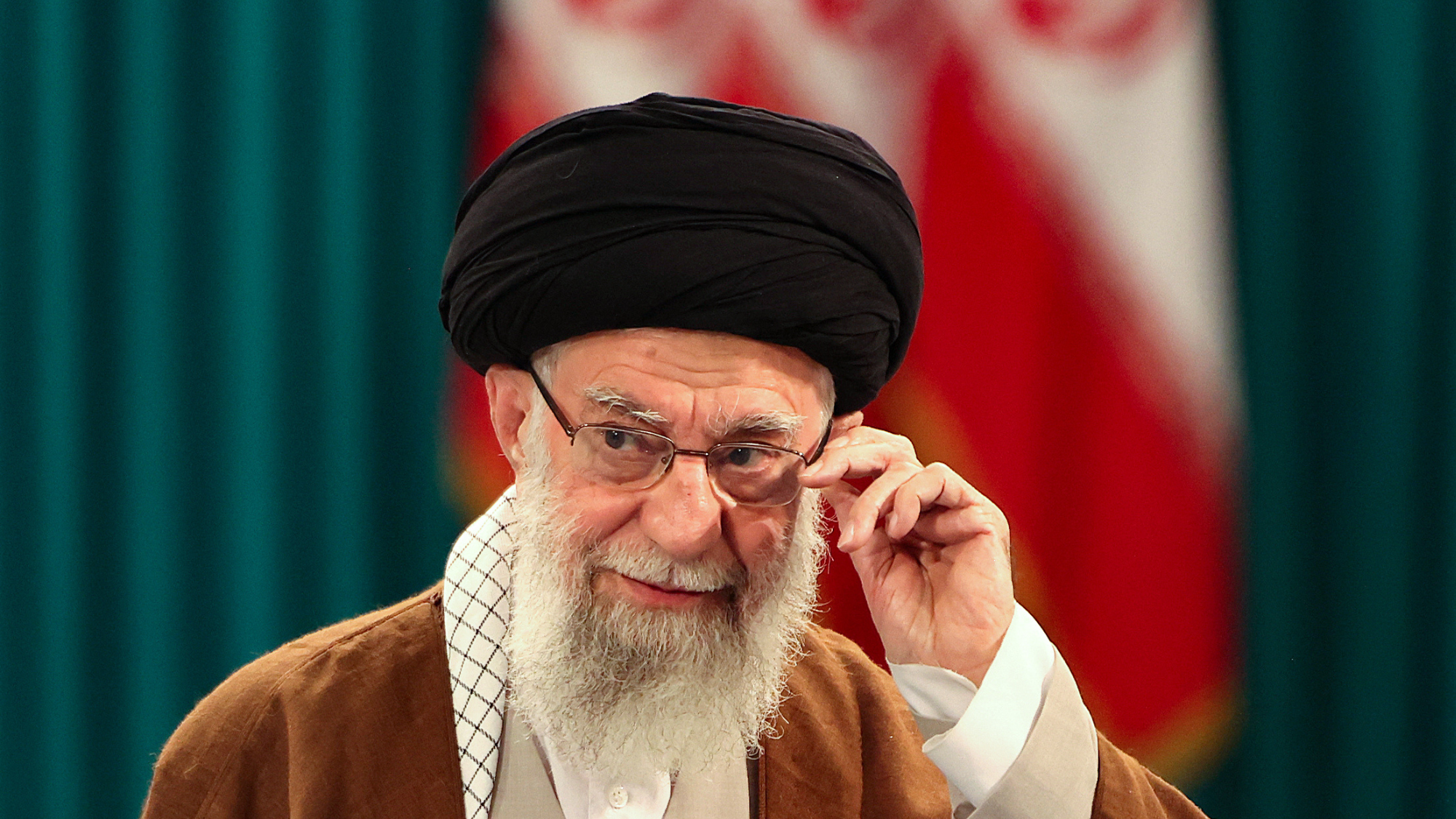Israel attacks Iran: a 'limited' retaliation
Iran's humiliated leaders must decide how to respond to Netanyahu's measured strike

A free daily email with the biggest news stories of the day – and the best features from TheWeek.com
You are now subscribed
Your newsletter sign-up was successful
It took 25 days to act, said Arash Azizi in The Atlantic, but last Saturday Israel finally responded to the salvo of missiles fired at it by Iran. The operation – named "Days of Repentance" – involved more than 100 Israeli fighter jets, and targeted air-defence systems, radars, military bases and missile production factories across Iran, including on the outskirts of Tehran.
It was the "most significant attack on Iran by any country since the 1980s", but fell a long way short of the apocalyptic strike some had feared. Israel didn't target Iran's nuclear or energy infrastructure, nor did it assassinate any political or military leaders. According to insiders, Israel even used intermediaries to give Tehran a day's warning, to avoid mass casualties (Iran said four soldiers died in the strikes). Given the limited nature of the attack, Iran has an opportunity to de-escalate the conflict by calling it quits.
What this strike shows, said Yossi Melman in Haaretz, is that, for all his bluster, Israel's PM, Benjamin Netanyahu, is "well aware of the limitation of Israel's power and its dependence on the US". He knew better than to push his luck days before America's election. Still, the attacks were a devastating display of Israel's aerial and intelligence superiority, showing it has the capacity to attack any Iranian site it wishes. The strikes were far from cosmetic, said Arieh Kovler in The Spectator. According to the Israeli journalist Barak Ravid, Israel targeted all of Iran's rocket-fuel mixers. Destroying them could cripple Iran's missile production "for months or years". That's bad for Tehran, and for Russia, which wants to use some of those missiles in Ukraine.
The Week
Escape your echo chamber. Get the facts behind the news, plus analysis from multiple perspectives.

Sign up for The Week's Free Newsletters
From our morning news briefing to a weekly Good News Newsletter, get the best of The Week delivered directly to your inbox.
From our morning news briefing to a weekly Good News Newsletter, get the best of The Week delivered directly to your inbox.
The question now is how Iran's humiliated leaders will respond, said The Economist. Israel's attack signals the failure of Tehran's national-security doctrine, which was based on outsourcing the job of fighting Israel to local proxies such as Hamas and Hezbollah. Iran's options are now limited. To regain a measure of deterrence, it could try to rebuild those militias, but that would mean "doubling down on a failed strategy". It could seek to boost its own military capabilities, but it lacks money. As for racing to create a nuclear bomb, that would invite further Israeli attacks that Iran, following the destruction of several of its air-defence batteries, is in no position to fend off. Another option, of course, would be to "pursue a less ideological foreign policy". But while most Iranians would welcome that, their 85-year-old supreme leader, Ali Khamenei, would never countenance it. We'll have to wait to see if his successor is more "pragmatic".
A free daily email with the biggest news stories of the day – and the best features from TheWeek.com
-
 Sepsis ‘breakthrough’: the world’s first targeted treatment?
Sepsis ‘breakthrough’: the world’s first targeted treatment?The Explainer New drug could reverse effects of sepsis, rather than trying to treat infection with antibiotics
-
 James Van Der Beek obituary: fresh-faced Dawson’s Creek star
James Van Der Beek obituary: fresh-faced Dawson’s Creek starIn The Spotlight Van Der Beek fronted one of the most successful teen dramas of the 90s – but his Dawson fame proved a double-edged sword
-
 Is Andrew’s arrest the end for the monarchy?
Is Andrew’s arrest the end for the monarchy?Today's Big Question The King has distanced the royal family from his disgraced brother but critics claim a ‘fit of revolutionary disgust’ could still wipe them out
-
 Will increasing tensions with Iran boil over into war?
Will increasing tensions with Iran boil over into war?Today’s Big Question President Donald Trump has recently been threatening the country
-
 Corruption: The spy sheikh and the president
Corruption: The spy sheikh and the presidentFeature Trump is at the center of another scandal
-
 Putin’s shadow war
Putin’s shadow warFeature The Kremlin is waging a campaign of sabotage and subversion against Ukraine’s allies in the West
-
 The fall of the generals: China’s military purge
The fall of the generals: China’s military purgeIn the Spotlight Xi Jinping’s extraordinary removal of senior general proves that no-one is safe from anti-corruption drive that has investigated millions
-
 Iran and US prepare to meet after skirmishes
Iran and US prepare to meet after skirmishesSpeed Read The incident comes amid heightened tensions in the Middle East
-
 Which way will Trump go on Iran?
Which way will Trump go on Iran?Today’s Big Question Diplomatic talks set to be held in Turkey on Friday, but failure to reach an agreement could have ‘terrible’ global ramifications
-
 Syria’s Kurds: abandoned by their US ally
Syria’s Kurds: abandoned by their US allyTalking Point Ahmed al-Sharaa’s lightning offensive against Syrian Kurdistan belies his promise to respect the country’s ethnic minorities
-
 Israel retrieves final hostage’s body from Gaza
Israel retrieves final hostage’s body from GazaSpeed Read The 24-year-old police officer was killed during the initial Hamas attack